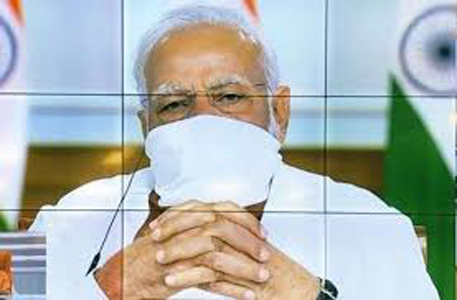NE NEWS SERVICE
NEW DELHI, JULY 29
The new National Education Policy (NEP) is one of the major factors in the grand exercise of nation-building and assures the youth that the country supports their aspirations, Prime Minister Narendra Modi said on Thursday.
https://twitter.com/narendramodi/status/1420735167849762823?s=20
Addressing a programme on the completion of one year of the NEP, the prime minister said what new heights “we will achieve in the future will depend on what kind of education we are giving to our youth at present”.
Our focus is on academic flexibility, extensive learning, promoting regional languages and harnessing technology. #TransformingEducation pic.twitter.com/UCSOlJzHN7
— Narendra Modi (@narendramodi) July 29, 2021
“India’s new National Education Policy is one of the major factors in the ”mahayagna” (grand exercise) of nation-building,” he said.
Modi said in the last one year, teachers, principals and policymakers of the country have worked very hard in implementing the National Education Policy on the ground.
“Today’s youth wants to decide their systems and their world on their own terms. They need exposure and freedom from shackles and restrictions. The New Education Policy, assures our youth that the country is fully with them and their aspirations. The Artificial Intelligence programme which was launched today will make the student future-oriented and will pave the way for an AI-driven economy.
“Similarly, National Digital Education Architecture (NDEAR) and National Education Technology Forum (NETF) will go a long way in providing a digital and technological framework to the entire country,” the prime minister said.
Highlighting that the NEP also gives importance to mother tongue and local languages, Modi said he was happy that 14 engineering colleges in eight states are going to start studies in five Indian languages – Hindi, Tamil, Telugu, Marathi and Bangla.
“A tool has been developed for translating engineering courses in 11 languages. This emphasis on mother tongue as the medium of instruction will instil confidence in the students from poor, rural and tribal backgrounds. Even in elementary education mother tongue is being promoted and the Vidya Pravesh programme, launched today, will play a big role in that.
“Indian sign language, for the first time, has been accorded the status of language subject. Students will be able to study it as a language also. There are more than three lakh students who need sign language for their education. This will give a boost to Indian sign language and will help the divyang people,” said the prime minister.
He highlighted the openness and absence of pressure in the New Education Policy.
“There is openness at policy level and this is also visible in the options available to the students. Options like multiple entry and exit will free students from the restriction of staying in one class and one course. Similarly, the modern technology-based Academic Bank of Credit system will bring in a revolutionary change.
“This will give confidence to the students in choosing streams and subjects. ”Structured Assessment for Analyzing Learning levels” (SAFAL) will take away the fear of examination,” he said.
Union Education Minister Dharmendra Pradhan as well as some chief ministers also participated in the event.
“The NEP will help prepare global citizens who will merge the best of tradition with the most modern and global outlook. These valuable human resources will shoulder collective responsibilities in the face of natural disasters and find solutions for issues that confront humanity.
“The progressive NEP will have a far-reaching impact on re-shaping the resilience, destiny and global standings of an Aatmanirbhar Bharat. The NEP reflects the resolve of our leadership to situate India at the top of the knowledge economy,” Pradhan said.
The NEP, which was approved by the Union Cabinet last year at a meeting presided by Prime Minister Modi, replaced the National Policy on Education framed in 1986. It is aimed at paving the way for transformational reforms in school and higher education systems to make India a global knowledge superpower.












